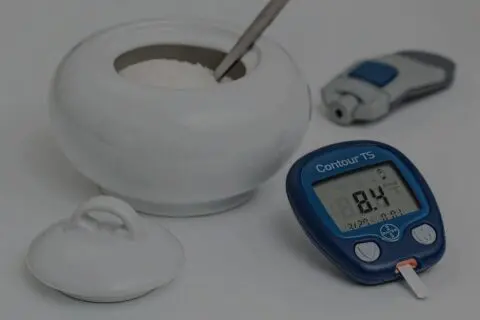Before we discuss oral antidiabetic medications (antihyperglycemics), it is essential to understand the two types of diabetes.
Type 1 Diabetes
This form of diabetes is caused by the lack of insulin production. The beta cells in the pancreas do not produce enough of this hormone.
Type 2 Diabetes
Type 2 diabetes is caused by insensitivity to insulin. The pancreas might produce more than the normal amount of insulin, but muscle and other cells cannot use it effectively to help take in sugar and convert it to energy.
Type 1 diabetes generally must be treated with insulin injections. Fortunately, for type 2 diabetic patients, oral antidiabetic medications are available, and insulin may not be required.
Types of Oral Antidiabetic Medications
Metformin
Glucophage (metformin) is the first drug of choice for newly diagnosed type 2 diabetic patients. Metformin works by sensitizing cells to insulin, lowering the rate of sugar absorption in the small intestine, and lowering the amount of sugar produced by the liver. Interestingly, this medication does not just lower blood sugar levels but may also significantly increase life expectancy. Initially, metformin may cause some gastrointestinal side effects, but these usually fade after days to weeks.
Sulfonylureas
Sulfonylureas increase the production of insulin in the pancreas and lower the breakdown of insulin in the liver.
- Glucotrol (glipizide)
- Diabeta (glyburide)
- Amaryl (glimepiride)
Meglitinides
Meglitinides stimulate the release of insulin from pancreatic cells.
- Prandin (repaglinide)
- Starlix (nateglinide)
Thiazolidinediones
Thiazolidinediones improve sugar metabolism.
- Avandia (rosiglitazone)
- Actos (pioglitazone)
Alpha-Glucosidase Inhibitors
These medications slow the absorption of carbohydrates from the small intestine.
- Precose (acarbose)
- Glyset (miglitol)
- Voglib (voglibose)
DPP-4 Inhibitors
DPP-4 inhibitors increase insulin release and slow stomach emptying.
- Januvia (sitagliptin)
- Onglyza (saxagliptin)
- Galvus (vildagliptin)
- Tradjenta (linagliptin)
- Vipidia (alogliptin)
Did you know that QuickMD can refill your diabetes medications online? You can access them from the comfort of your home, and prescriptions can be sent to any pharmacy, including mail pharmacies that deliver directly to your door.




